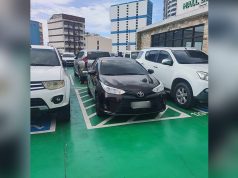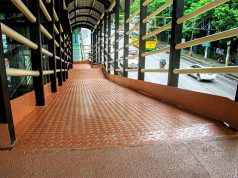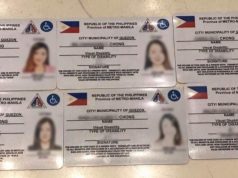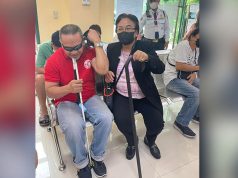A local coffee kiosk reminded its customers to treat their differently abled employees with respect after an individual complained about the supposed “bad service” he experienced in one of their branches.
Farron Cafe shared a screenshot of messages it received from a dissatisfied customer who slammed them for their deaf and blind employees.
“This is one of the realities that they (PWDs) face every day. But in Farron Cafe, we believe in their abilities,” the company wrote in Filipino.
“Please respect, understand and treat fairly our employees,” it added.
The company also clarified that it did not share the screenshot as a means to shame the customer but “to create an awareness” for employed PWDs.
“Hi everyone! We posted this not to create hate to the sender of this message but to create an awareness and love for our beloved PWDs that they can be treated equally and with dignity,” it said in the comments section.
Advocacy
The cafe prioritizes to employ differently abled people and out-of-school youth to uplift and empower them as individuals.
One of its co-founders, Farwa Hombre, shared that it is their advocacy as a local coffee kiosk.
“Ever since, our advocacy is to hire out of school youths,” she shared in an interview.
As of July 2018, the cafe has 98 percent of employees who come from that particular sector. They have 20 deaf and mute employees as well.
“We put up a note in our outlets if they are staffed with deaf and mute,” Hombre revealed.
The employees are also given incentives when they reached their quota, in addition to their salaries.
Among other enterprises that employ differently abled people are Fruitas, De Original Jamaican Pattie Shop, The Happy Project, Elait, Conscious Canvas, Dunamai Cafe and Project Lily, among others.
Protected under law
Differently abled people are protected by Republic Act 7277 or the “Magna Carta for Disabled Persons” which mandate that they should be fully supported by the state through benefits, priviledges and opportunities.
It was amended as Republic Act 9442 which grants them additional benefits as well as protection against vilification and non-verbal ridicule.
Under RA 7277, differently abled people are granted the right to be employed with considerations to their particular needs.
They are also protected from discrimination arising from work and employment, public transportation, accommodation and services.
RA 9442, meanwhile, highlights that differently abled individuals cannot be vilified for their state or condition.
Vilification is defined under Section 8, Chapter 2 which states it is “the utterance of slanderous and abusive statements against a person with disability.”
Specific acts include the following:
(1) calling a person by his disability in public which results to humiliation; (2) using the disability of a person as an example in a manner that is embarrassing and humiliating to the dignity of persons with disability.
It also considers “an activity in public which incites hatred towards, serious contempt for, or severe ridicule of persons with disability” as a form of vilification.
“Any individual, group or community is hereby prohibited from vilifying any person with disability which could result into loss of self-esteem of the latter,” the law states.
Violators could be penalized for P50,000 to P100,000.00 or be imprisoned for six months up to two years.










